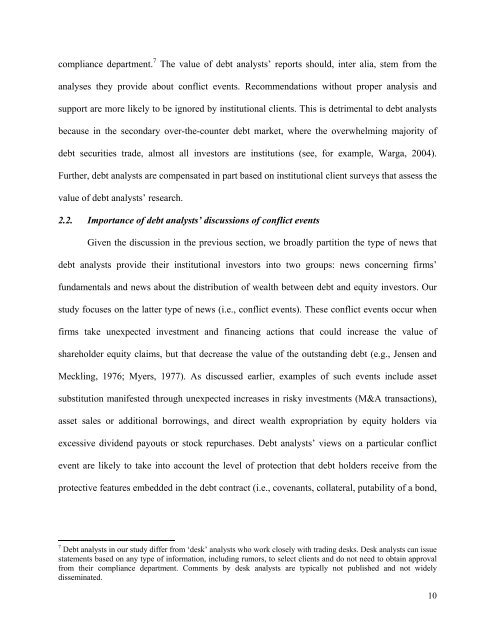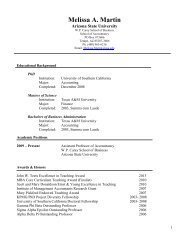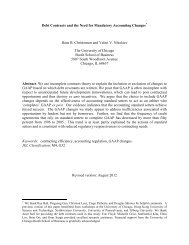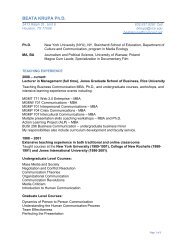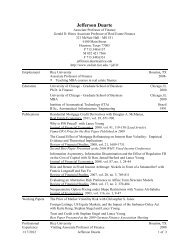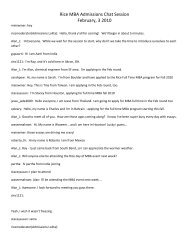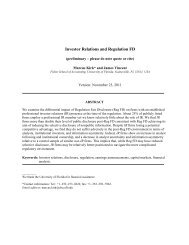Debt Analysts' Views of Debt-Equity Conflicts of Interest
Debt Analysts' Views of Debt-Equity Conflicts of Interest
Debt Analysts' Views of Debt-Equity Conflicts of Interest
Create successful ePaper yourself
Turn your PDF publications into a flip-book with our unique Google optimized e-Paper software.
compliance department. 7 The value <strong>of</strong> debt analysts’ reports should, inter alia, stem from the<br />
analyses they provide about conflict events. Recommendations without proper analysis and<br />
support are more likely to be ignored by institutional clients. This is detrimental to debt analysts<br />
because in the secondary over-the-counter debt market, where the overwhelming majority <strong>of</strong><br />
debt securities trade, almost all investors are institutions (see, for example, Warga, 2004).<br />
Further, debt analysts are compensated in part based on institutional client surveys that assess the<br />
value <strong>of</strong> debt analysts’ research.<br />
2.2. Importance <strong>of</strong> debt analysts’ discussions <strong>of</strong> conflict events<br />
Given the discussion in the previous section, we broadly partition the type <strong>of</strong> news that<br />
debt analysts provide their institutional investors into two groups: news concerning firms’<br />
fundamentals and news about the distribution <strong>of</strong> wealth between debt and equity investors. Our<br />
study focuses on the latter type <strong>of</strong> news (i.e., conflict events). These conflict events occur when<br />
firms take unexpected investment and financing actions that could increase the value <strong>of</strong><br />
shareholder equity claims, but that decrease the value <strong>of</strong> the outstanding debt (e.g., Jensen and<br />
Meckling, 1976; Myers, 1977). As discussed earlier, examples <strong>of</strong> such events include asset<br />
substitution manifested through unexpected increases in risky investments (M&A transactions),<br />
asset sales or additional borrowings, and direct wealth expropriation by equity holders via<br />
excessive dividend payouts or stock repurchases. <strong>Debt</strong> analysts’ views on a particular conflict<br />
event are likely to take into account the level <strong>of</strong> protection that debt holders receive from the<br />
protective features embedded in the debt contract (i.e., covenants, collateral, putability <strong>of</strong> a bond,<br />
7 <strong>Debt</strong> analysts in our study differ from ‘desk’ analysts who work closely with trading desks. Desk analysts can issue<br />
statements based on any type <strong>of</strong> information, including rumors, to select clients and do not need to obtain approval<br />
from their compliance department. Comments by desk analysts are typically not published and not widely<br />
disseminated.<br />
10


